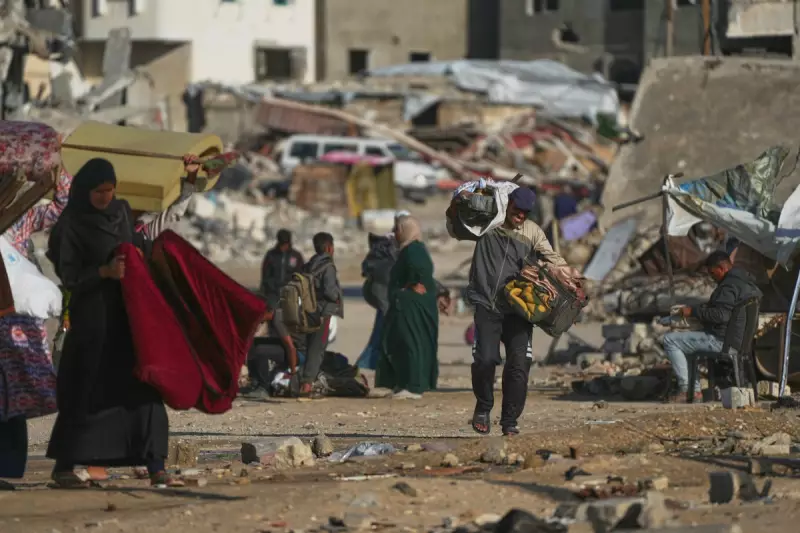
In a significant move for Middle East peace efforts, the United Nations Security Council has given its crucial approval to a United States plan for the future of Gaza. The resolution authorises the deployment of an international stabilisation force to provide security in the war-torn territory and, for the first time in a UN text of this nature, envisions a credible pathway to an independent Palestinian state.
A Landmark Vote and International Consensus
The vote, held on Monday 17th November 2025, passed with a decisive 13-0 majority, though permanent Security Council members Russia and China chose to abstain. There had been considerable diplomatic concern that Moscow might use its veto power to block the American-led initiative, especially after it circulated a rival proposal last week. The successful adoption signals a fragile but vital international consensus on the next steps for Gaza following more than two years of devastating conflict between Israel and Hamas.
The resolution endorses a 20-point ceasefire plan initially put forward by US President Donald Trump. A central component is the creation of a transitional authority known as the Board of Peace, which President Trump is slated to head. Furthermore, it grants a wide mandate to the newly authorised international stabilisation force, tasking it with overseeing borders, providing general security, and leading the demilitarisation of the Gaza Strip. This authorisation for both the board and the force is set to expire at the end of 2027.
The Path to Palestinian Statehood and Regional Reactions
A key factor in securing the resolution's passage was the strengthening of language concerning Palestinian self-determination. After nearly two weeks of intense negotiations, Arab nations and Palestinian representatives successfully pressed the US to amend its initial draft.
The final text states that after the Palestinian Authority implements necessary reforms and the mammoth task of redeveloping Gaza advances, "the conditions may finally be in place for a credible pathway to Palestinian self-determination and statehood." It also commits the United States to establishing a dialogue between Israel and the Palestinians to agree on a political horizon for peaceful coexistence.
This revised wording has provoked a strong reaction from Israeli Prime Minister Benjamin Netanyahu, who vowed just a day before the vote to oppose any attempt to establish a Palestinian state. He has long argued that such a move would effectively reward Hamas. The resolution's success, however, was heavily dependent on support from key Arab and Muslim nations, including Qatar, Egypt, Saudi Arabia, and Turkey, who issued a joint statement calling for its "swift adoption."
Mandate and Implementation of the Stabilisation Force
The approved US resolution outlines a robust role for the international stabilisation force. Its primary duties will include ensuring the demilitarisation of Gaza and the permanent decommissioning of weapons from non-state armed groups – a complex challenge given Hamas's historical stance. The force is authorised "to use all necessary measures" to fulfil its mandate, which is standard UN language permitting the use of military force.
In practice, the troops will help secure border areas in coordination with a newly trained and vetted Palestinian police force. They will also work to facilitate the flow of critical humanitarian aid and are instructed to cooperate closely with neighbouring Egypt and Israel. The resolution stipulates that as the international force establishes control and brings stability, Israeli forces will withdraw from Gaza according to agreed-upon standards and timelines linked to the demilitarisation process.
The conflict that prompted this international intervention was triggered by Hamas's surprise attack on southern Israel on 7th October 2023, which killed approximately 1,200 people. Israel's subsequent military offensive has, according to the Gaza health ministry, resulted in the deaths of over 69,000 Palestinians, the majority reported to be women and children.





